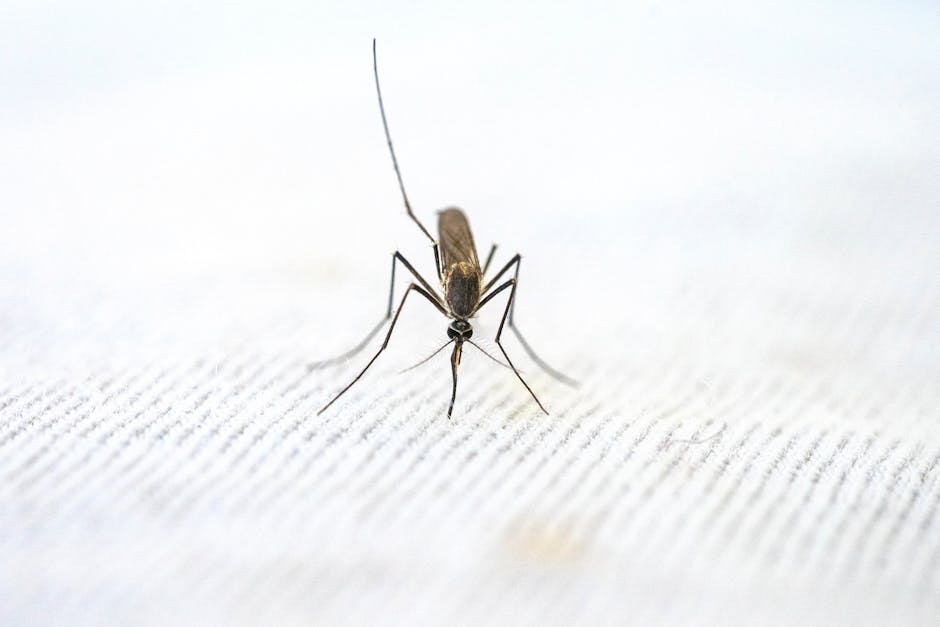Did you know that your blood type could determine how attractive you are to mosquitoes? It may seem like a strange connection, but scientists have discovered that different mosquito species have preferences when it comes to blood. Some mosquitoes are more attracted to certain blood types than others. In this article, we will delve into the fascinating world of blood types and mosquitoes to understand why some people seem to be bug magnets while others are left untouched. Let’s explore!
The Historical Background of Blood Type that Mosquitoes
The Discovery of Blood Types
Before we can understand the relationship between blood types and mosquitoes, let’s first delve into the historical background of blood types. The concept of blood types was discovered by Karl Landsteiner, an Austrian physician, in the early 20th century. Landsteiner observed that when blood from different individuals was mixed, it would sometimes clump together. He labeled these clumping reactions as blood types, and his discovery laid the foundation for understanding the complex nature of human blood.
The Link Between Blood Types and Diseases
Over time, scientists discovered that certain blood types were more susceptible to certain diseases. For example, individuals with type A blood were found to be more prone to developing severe malaria, while those with type O blood were less likely to be infected. These findings sparked curiosity among researchers and led to further investigations into the relationship between blood types and susceptibility to diseases carried by blood-sucking insects, such as mosquitoes.
Current Trends and Statistics Related to Blood Type that Mosquitoes
Mosquito Preferences for Blood Types
Recent studies have revealed interesting patterns when it comes to mosquito preferences for blood types. For instance, research shows that mosquitoes of the species Aedes aegypti, which are known carriers of dengue fever, Zika virus, and chikungunya, are more attracted to individuals with type O blood. On the other hand, mosquitoes of the species Anopheles gambiae, which transmit malaria, show a preference for individuals with type A blood. These findings suggest that blood type can influence a person’s attractiveness to different mosquito species.
Geographical Variations in Mosquito Preferences
In addition to individual blood type preferences, there are also geographical variations in mosquito preferences. For example, studies have shown that in some regions, mosquitoes exhibit a stronger preference for one blood type over others. This could be due to genetic factors, as well as the prevalence of certain diseases in specific areas. Understanding these geographical variations can be helpful in designing targeted mosquito control strategies and preventive measures.
Practical Advice or Tips Related to Blood Type that Mosquitoes
Protective Measures for Everyone
While it’s true that some blood types may attract more mosquitoes than others, it’s important to note that anyone can be a target for these pesky insects. Therefore, it’s essential for everyone to take protective measures to prevent mosquito bites. These measures include wearing long-sleeved clothing, using mosquito repellents, and eliminating standing water around your living area. By following these tips, you can reduce your risk of being bitten by mosquitoes, regardless of your blood type.
Personalized Protection Based on Blood Type
For individuals who are particularly susceptible to mosquito bites due to their blood type, there may be some additional precautions they can take. For example, if you have type O blood and are more attractive to Aedes aegypti mosquitoes, you could consider using mosquito nets while sleeping or applying insect repellents more frequently. By personalizing your protection based on your blood type, you may be able to minimize your exposure to mosquito-borne diseases.
Future Predictions or Upcoming Innovations Related to Blood Type that Mosquitoes
Genetic Engineering to Alter Mosquito Preferences
In the future, we may see advancements in genetic engineering techniques that can alter the preferences of mosquitoes for certain blood types. Scientists are already studying the genetic factors that influence mosquito preferences and exploring ways to manipulate them. If successful, this could potentially reduce the transmission of diseases carried by mosquitoes, leading to better health outcomes for individuals with blood types that are more attractive to these insects.
New Tools for Mosquito Control
As our understanding of mosquito behavior and preferences continues to grow, we can expect the development of new tools and technologies for mosquito control. This could include innovative traps that target mosquitoes based on their attraction to specific blood types or breeding prevention techniques that disrupt their reproductive cycles. These advancements in mosquito control could potentially revolutionize the way we protect ourselves from mosquito-borne diseases in the future.
In conclusion, the relationship between blood types and mosquito preferences is a captivating field of study that sheds light on the complex interactions between mosquitoes and human biology. By understanding these connections, we can develop more targeted and effective strategies to prevent mosquito-borne diseases and protect ourselves from these buzzing insects. So next time you find yourself being swarmed by mosquitoes, remember that your blood type may just be the reason!
Final Thoughts on Blood type that mosquitoes
In conclusion, mosquitoes are indeed more attracted to certain blood types than others. Type O blood seems to be the most attractive to mosquitoes, while type A blood is the least attractive. However, more research needs to be done to fully understand the underlying factors that contribute to this preference.
While blood type does play a role in mosquito attraction, it is important to note that factors such as body odor, carbon dioxide emission, and temperature also affect mosquito preferences. Additionally, it is crucial to take precautions and use mosquito repellents to protect against mosquito-borne diseases.
Understanding how mosquitoes are attracted to different blood types can potentially lead to new strategies for mosquito control and prevention. By targeting specific blood types that mosquitoes find attractive, scientists may be able to develop more effective repellents and ultimately reduce the transmission of diseases.
Further Reading and Resources
-
“Why Do Mosquitoes Prefer Some People Over Others?” – This article provides a comprehensive overview of the factors that contribute to mosquito attraction, including blood type. It explores various research studies and offers insights into mosquito behavior.
-
“The Role of Genetics in Mosquito Attraction” – This scientific study investigates the genetic factors that influence mosquito attraction, including the role of blood type. It provides detailed analysis and sheds light on the underlying mechanisms.
-
“Mosquito-Borne Diseases: Prevention and Control Strategies” – This resource offers guidance on preventing mosquito-borne diseases. It discusses various prevention methods, including the use of mosquito repellents and mosquito control measures.
-
“Blood Type and Disease Susceptibility: A Comprehensive Review” – This research paper explores the relationship between blood type and susceptibility to various diseases. It provides valuable insights into the broader implications of blood type beyond mosquito attraction.
-
“Mosquitoes and Malaria: The Blood Connection” – This informative article delves into the connection between mosquitoes, blood, and malaria. It discusses the role of blood type in malaria transmission and highlights the importance of mosquito control in combating the disease.
[Other information related to this article]







답글 남기기